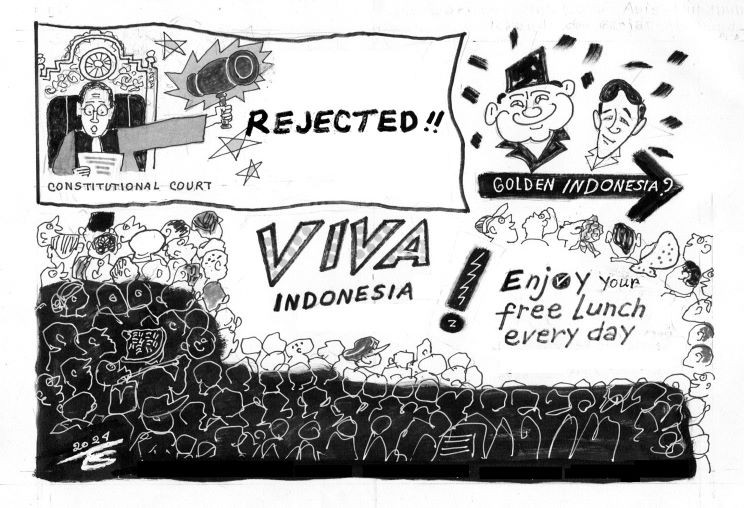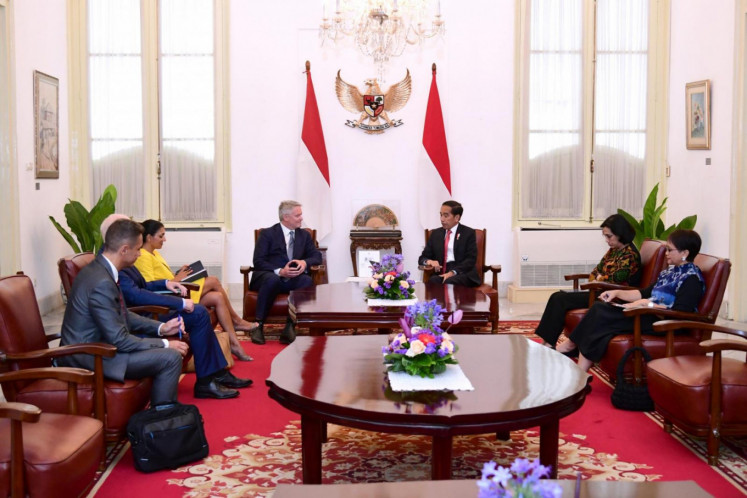EDITORIAL: The netizens' fatwa
Most shocking were recent incidents of “digital vigilantism.”
Change Size
 Most shocking were recent incidents of “digital vigilantism.” (shutterstock.com/Hadrian/File)
Most shocking were recent incidents of “digital vigilantism.” (shutterstock.com/Hadrian/File)
A
new fatwa (edict) from the Indonesian Ulema Council (MUI) should help make cyberspace a nicer place — it is just about basic decency and honesty, which all religions preach. But decency and honesty on the internet is not so simple given temptations to click away one’s thoughts and expressions in seconds; whether they are personal or related to, for instance, political campaigns.
Developed by the global online community since 1995, netizens have “netiquette”, or etiquette on the internet. Guidelines remind us that although conversations can take place in real time, the parties involved do not know the tone of one’s voice or body language; joking may be confused for serious accusations.
Yet Indonesians nevertheless faced increased risks of standing trial on charges of defamation under the controversial Electronic Information and Transactions Law.
Heated exchanges occurred particularly around the Jakarta gubernatorial election period. Therefore the fatwa on interaction on social media should have been issued much earlier.
But better late than never, before many more Muslims ruin their fast by gossiping and engaging in overheated debates — including presumed tension between acting Jakarta governor Djarot Saiful Hidayat and the transition team of governor-elect Anies Baswedan, to arguments on valid prayers to break the fast.
As a semi-state body in a non-religious state the MUI rulings are non-binding, but serve as guidance for Indonesian Muslims. A fatwa on internet conduct is fitting following much distress among friends and family facing hateful remarks, and signals of “unfriending” or “leave group.”
Most shocking were recent incidents of “digital vigilantism.” Vigilantes tracked down social account owners who had posted remarks that apparently offended them; even a boy in East Jakarta was intimidated and slapped by alleged supporters of the Islam Defenders Front (FPI). Police arrested two men for child abuse, and National Police chief Gen. Tito Karnavian dismissed the Solok Police chief in West Sumatra for failing to protect a physician who faced intimidation following her Facebook posts on FPI leader, Rizieq Shihab.
The police and the MUI may have been whipped into action following President Joko “Jokowi” Widodo’s warning against people taking the law into their own hands.
Among the MUI guidelines are that the information to be spread must be verified for accuracy and context; it further urges efforts to prevent and delete information known to be inaccurate. The fatwa cites Quranic verses that warn against lying and cursing, for instance, which Muslims learned about as children.
But because too many have forgotten their early lessons, the fatwa also urges religious figures to set good examples of social media use in addition to recommending wider public education on the issue.









